Reflective Looking–Black Printmakers Finding Self and Community Through Print
Curated by Althea Murphy-Price
Artist Statement
As a child growing up in North-West London, I accompanied my father on weekly visits to the local barber. I listened to the stories of the Afro-Caribbean elders while taking their turn in the barber’s chair, and quickly understood the space as one of communal comradery where cultural wisdom is shared. Before entering the barbers, my father would remind us, ‘Children are seen and not heard’. We would read comics, draw and intermittently listen to their saucy exploits and pearls of wisdom. This forced stoicism honed my visual awareness and imagination. I sat, observed and invented characters for each elder as they spoke. I matured and concluded this space was my first institute of learning … or unlearning. A place of intimacy and renewal, where the skilled hands of the barber were entrusted for human transformation. To cut away the old and reveal the new. Visiting the National Portrait Gallery and only seeing my body depicted in the nation’s revered works in positions of servitude prompted me to write a promissory note to my older self. Pursue a career in the arts to reflect and index the Black experience as a complex kaleidoscopic view composed of faith, beauty, magic, and great expectations. The complexity of print in the extended form, was the perfect point of departure to explore, reflect and redefine Black Futurity in all its glory to challenge the academies of science, philosophy and the arts. Works like the Grave Diggaz, suspended layering of photographs and limestone, addressed the transience between time and space, presence and absence. The heated debates on origins, conveyed in Patent, honoring and celebrating African American inventors scrupulously excluded from the history books. Explorations of privilege, through space and light with the Garden of Eden, the intimate study of the oldest recognized fraternal organization founded by African Americans, Prince Hall Freemasonry and Live Salon, purpose and performance of the barber space. My entire catalogue yielded to the salon as an indistinguishable space of cultural activity, a site for new reflection and a place where ideas of justice and equality are repurposed for the common good and the ghosts of our personal and political pasts laid to rest.
Faisal Abdu’Allah
Chazen Family Distinguished Chair in Art
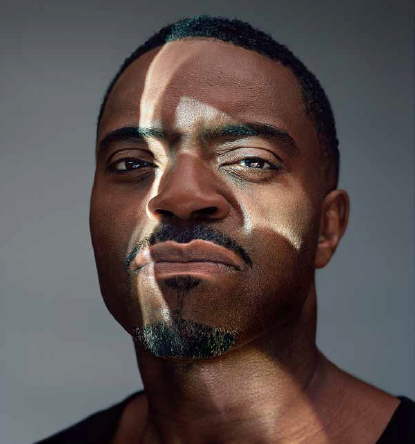
Photo credit: Franklyn Rodgers
Artist
Dr. Faisal Abdu’Allah
Exhibition
Reflective Looking–Black Printmakers Finding Self and Community Through Print
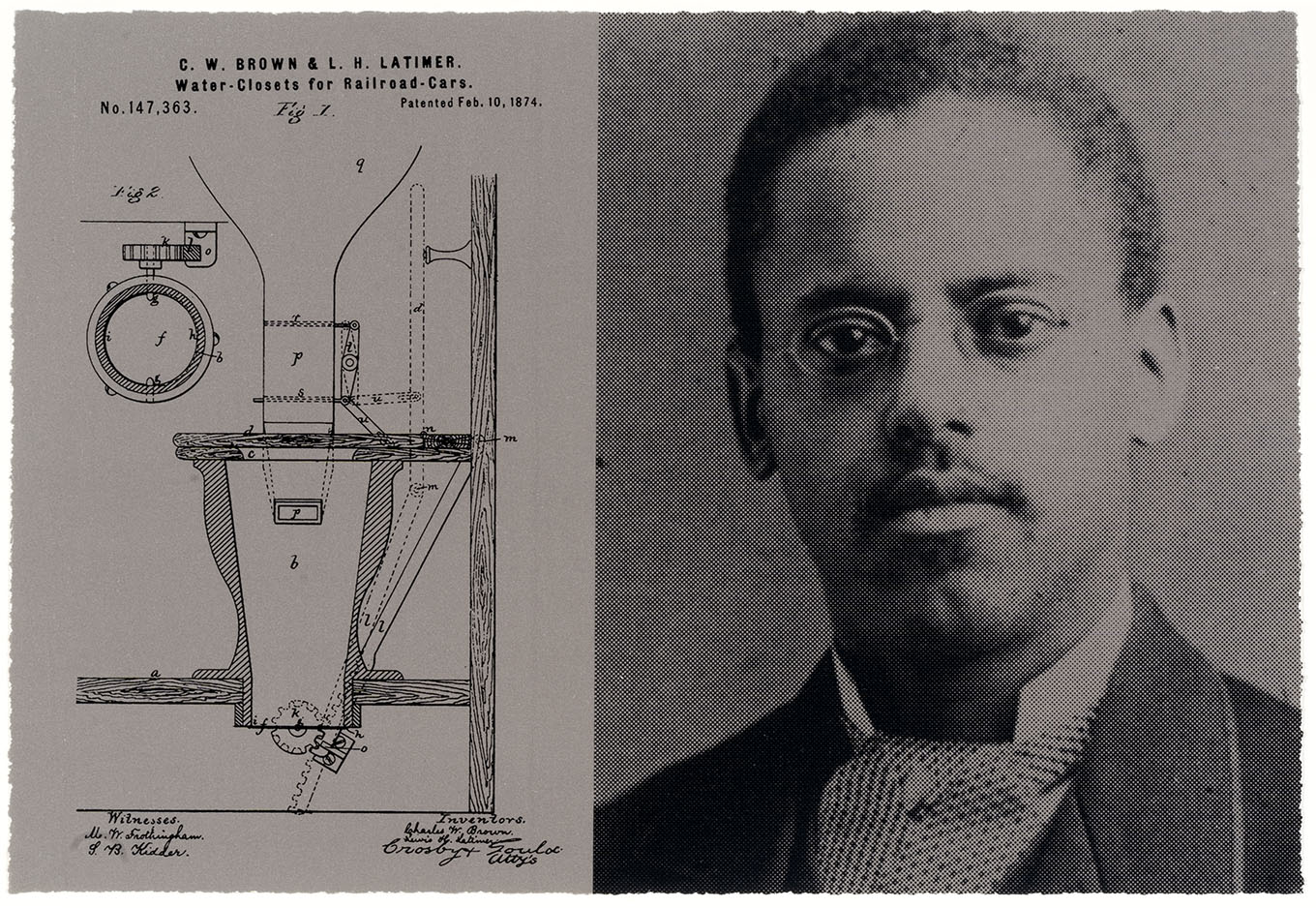
Patent, Lewis Howard Latimer
Screenprint with silver metallic ink on paper, 15″ x 22″, 2022
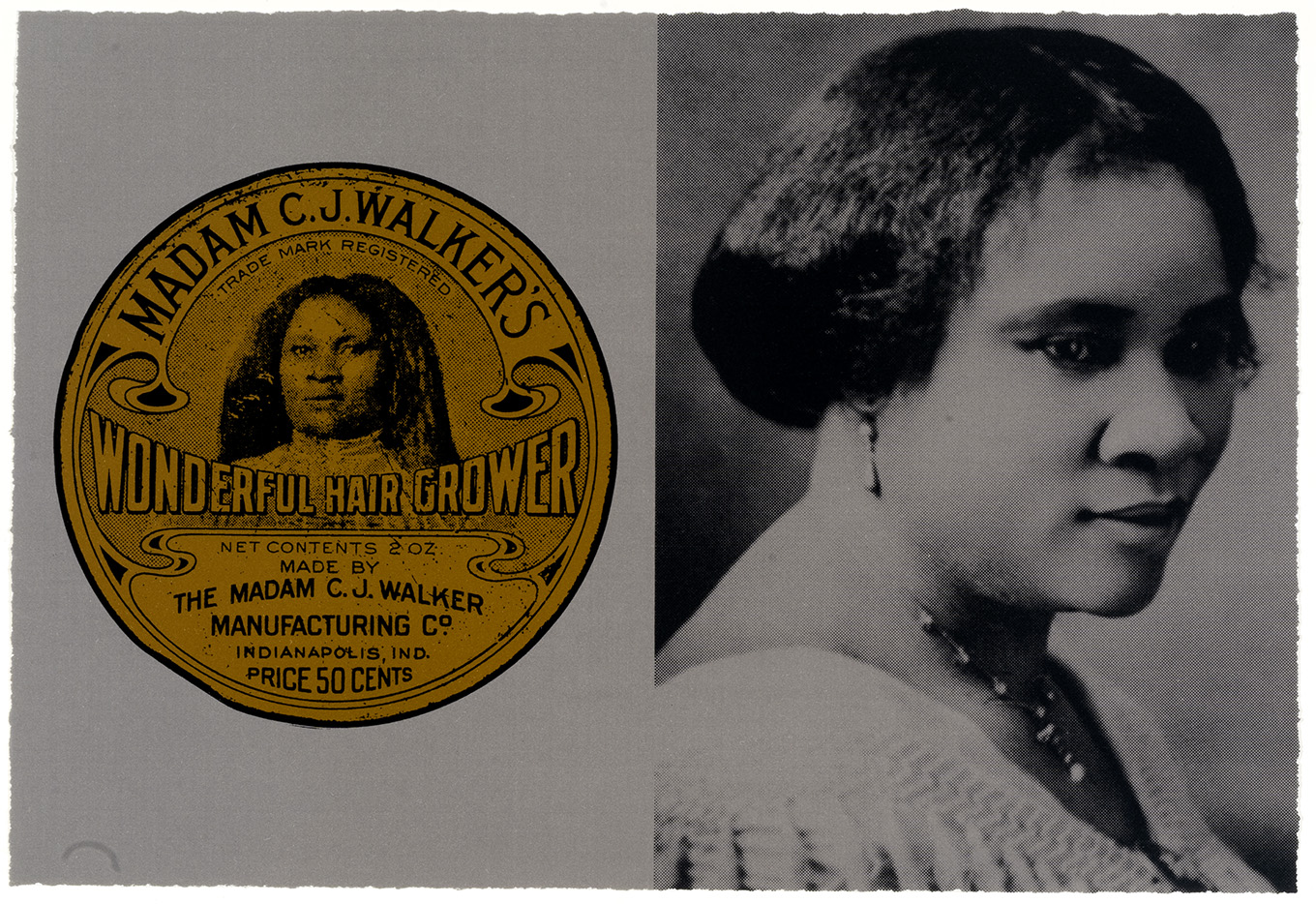
Patent, Madame C.J. Walker
Screenprint with silver metallic ink on paper, 15″ x 22″, 2022
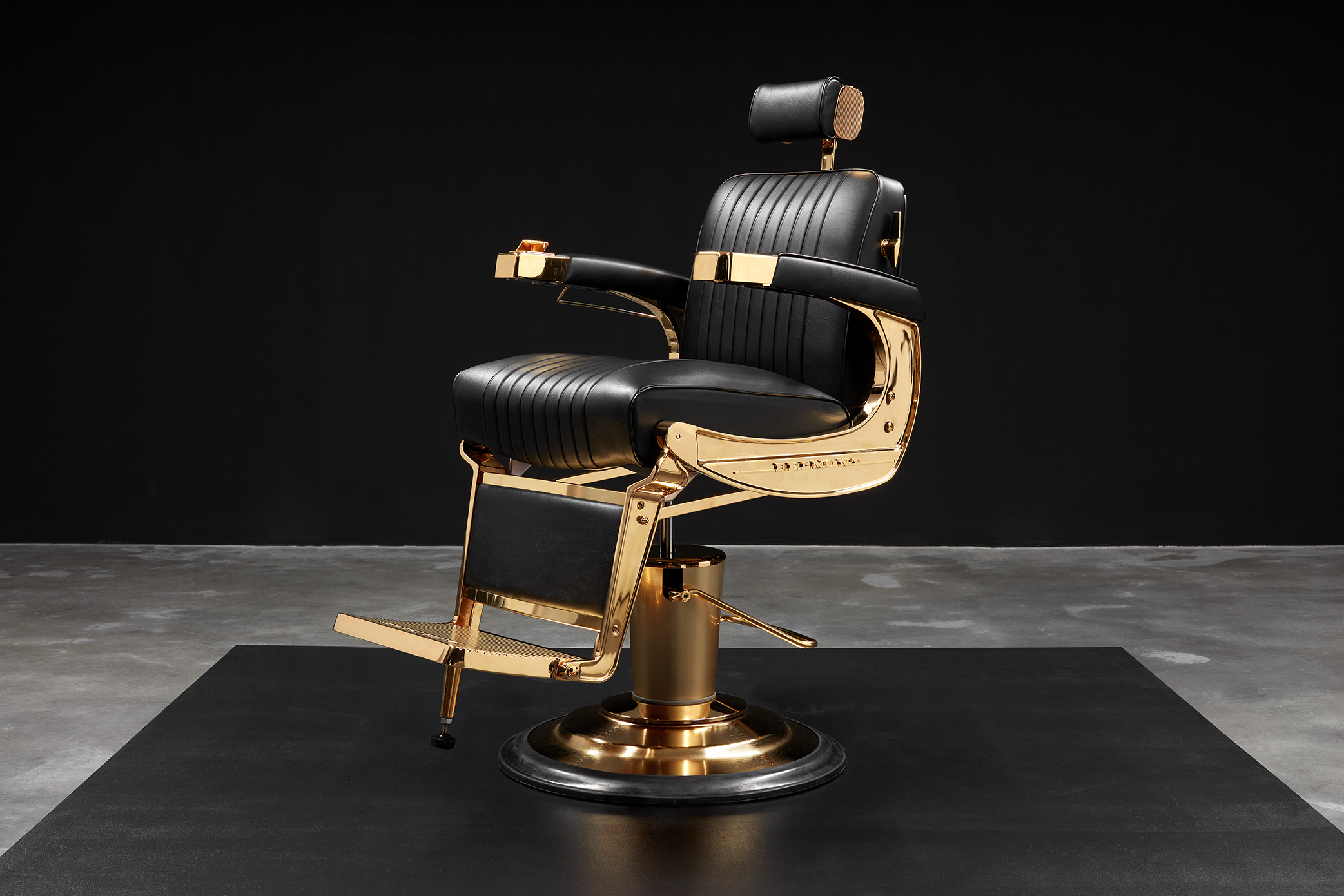
The Barber’s Chair
Gold plating, leather, aluminum, cast iron; 49″ x 55″ x 25″; 2017
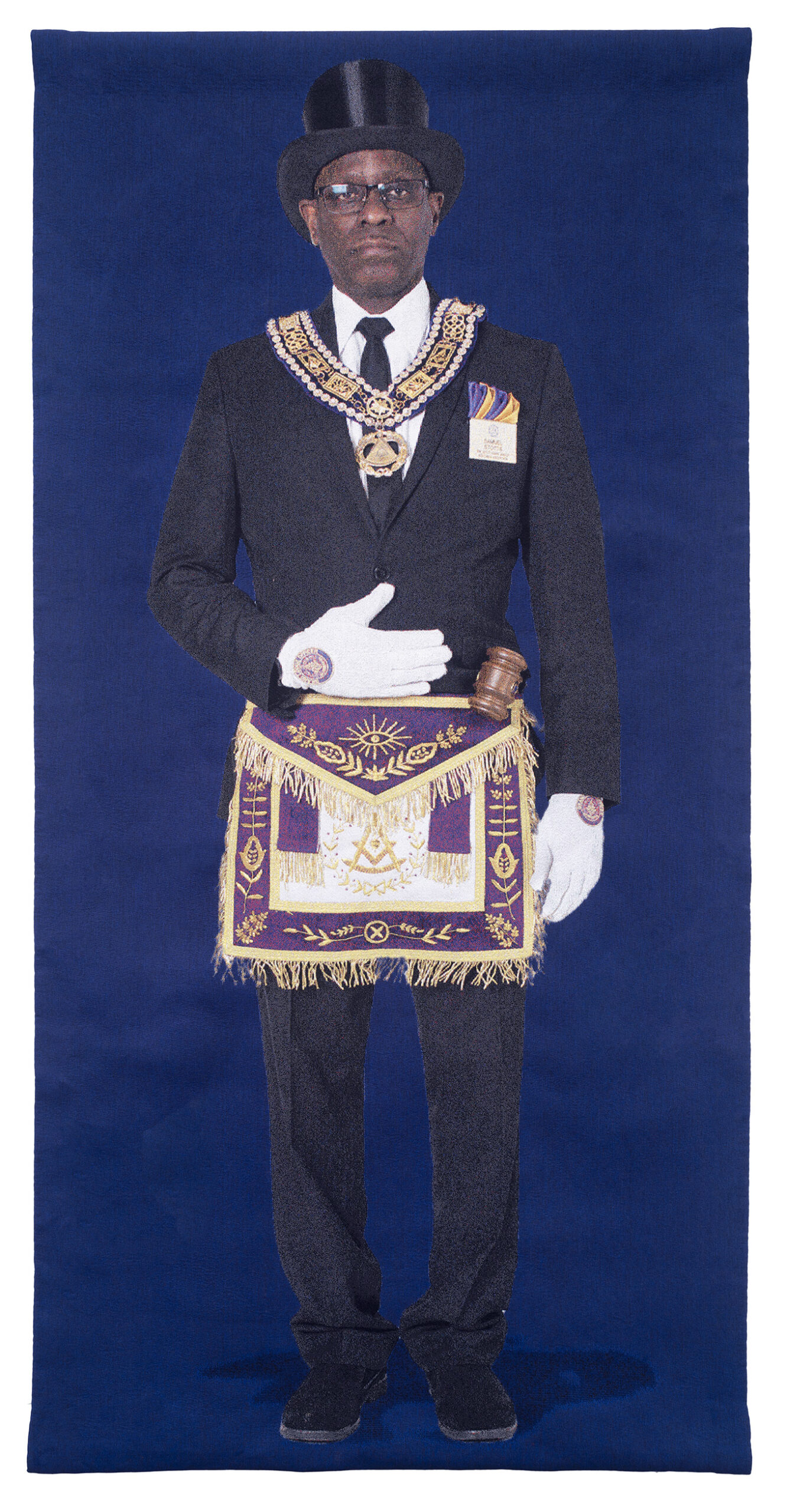
Prince Hall, MWGM Samuel L. Stotts
Jacquard tapestry, 117″ x 60″, 2021-22
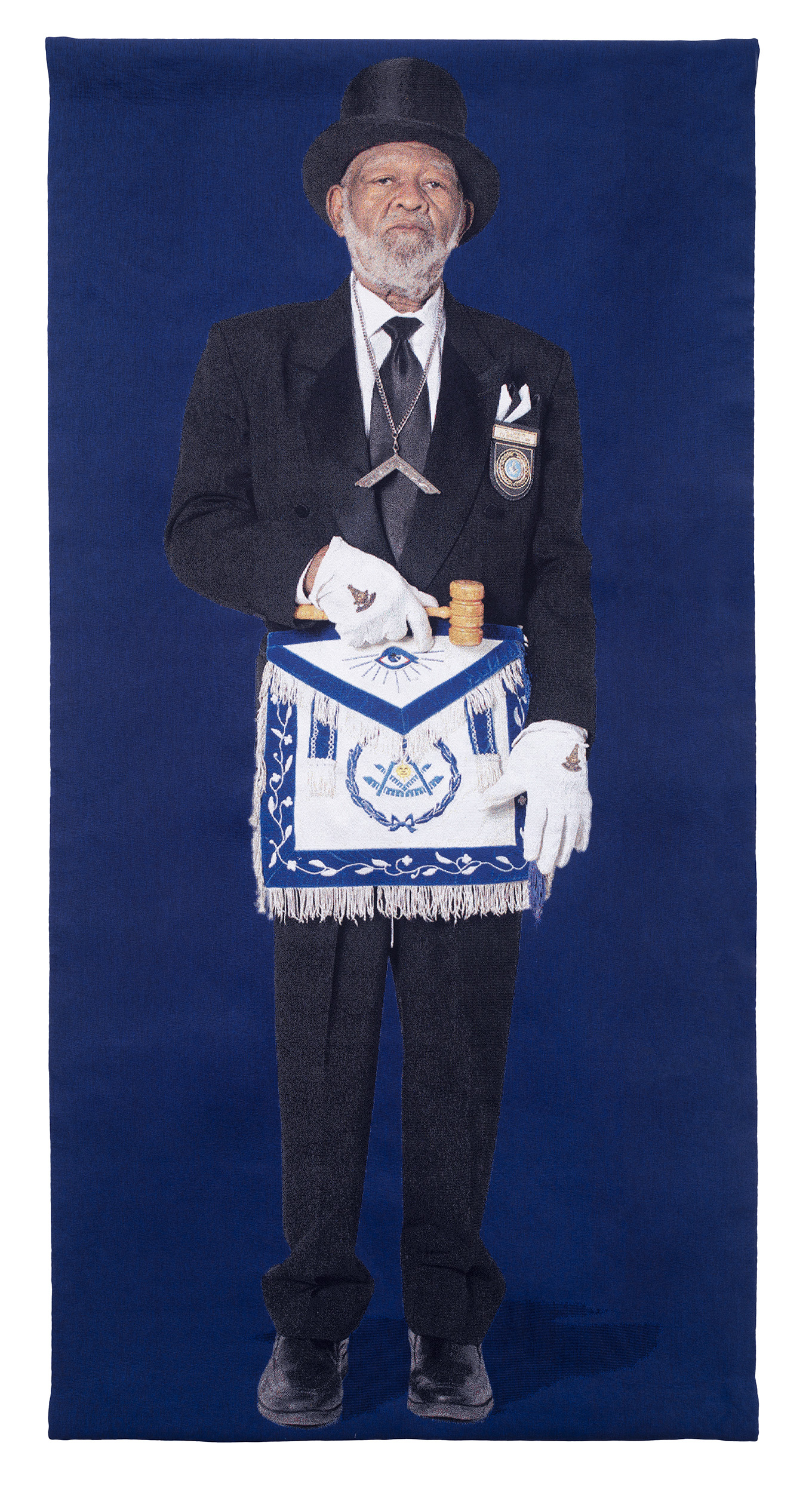
Prince Hall, TV Brown
Jacquard tapestry, 117″ x 60″, 2021-22
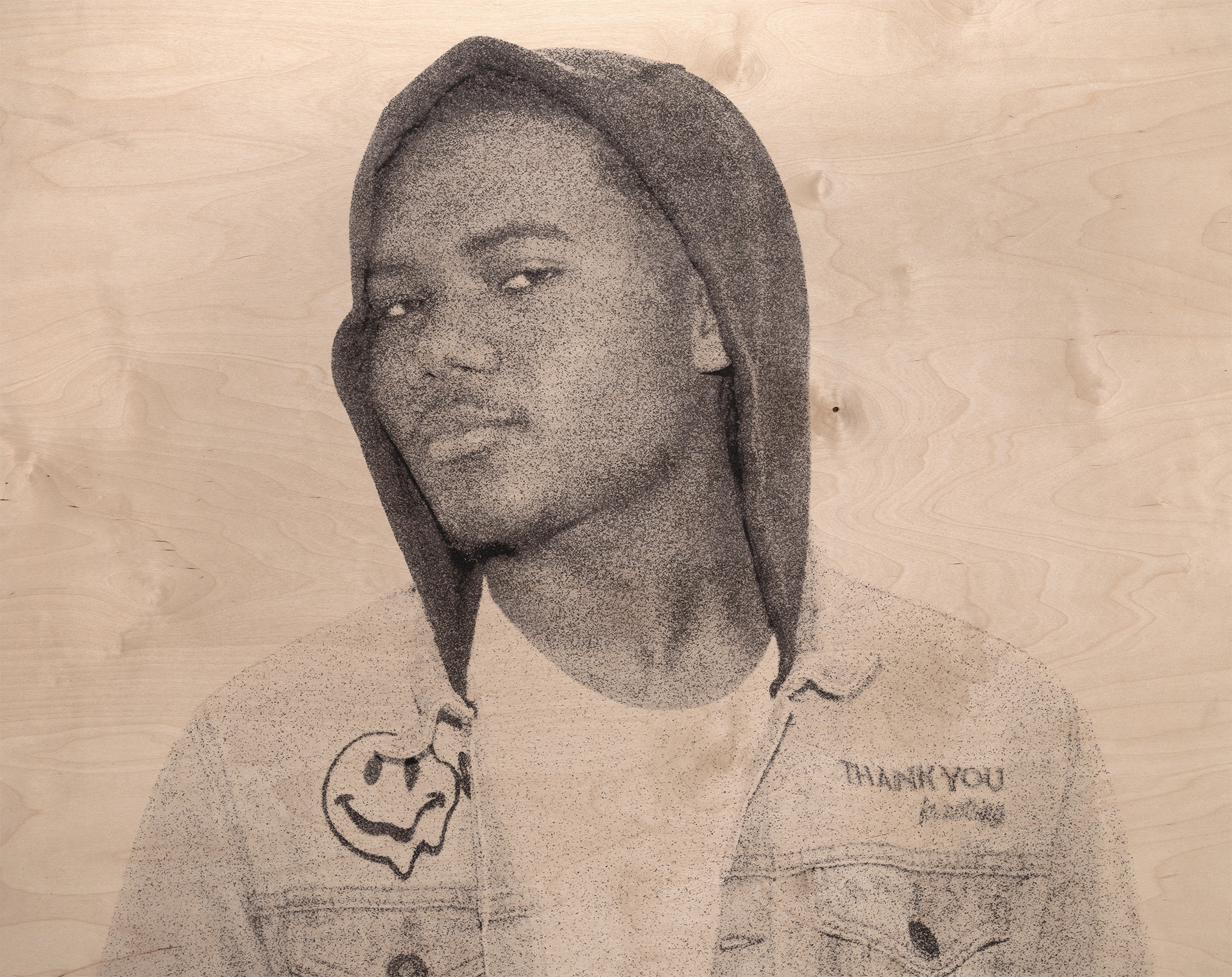
Jordan Hair Trait 1
Hair and acrylic on birch veneer plywood, 50″ x 40″, 2022
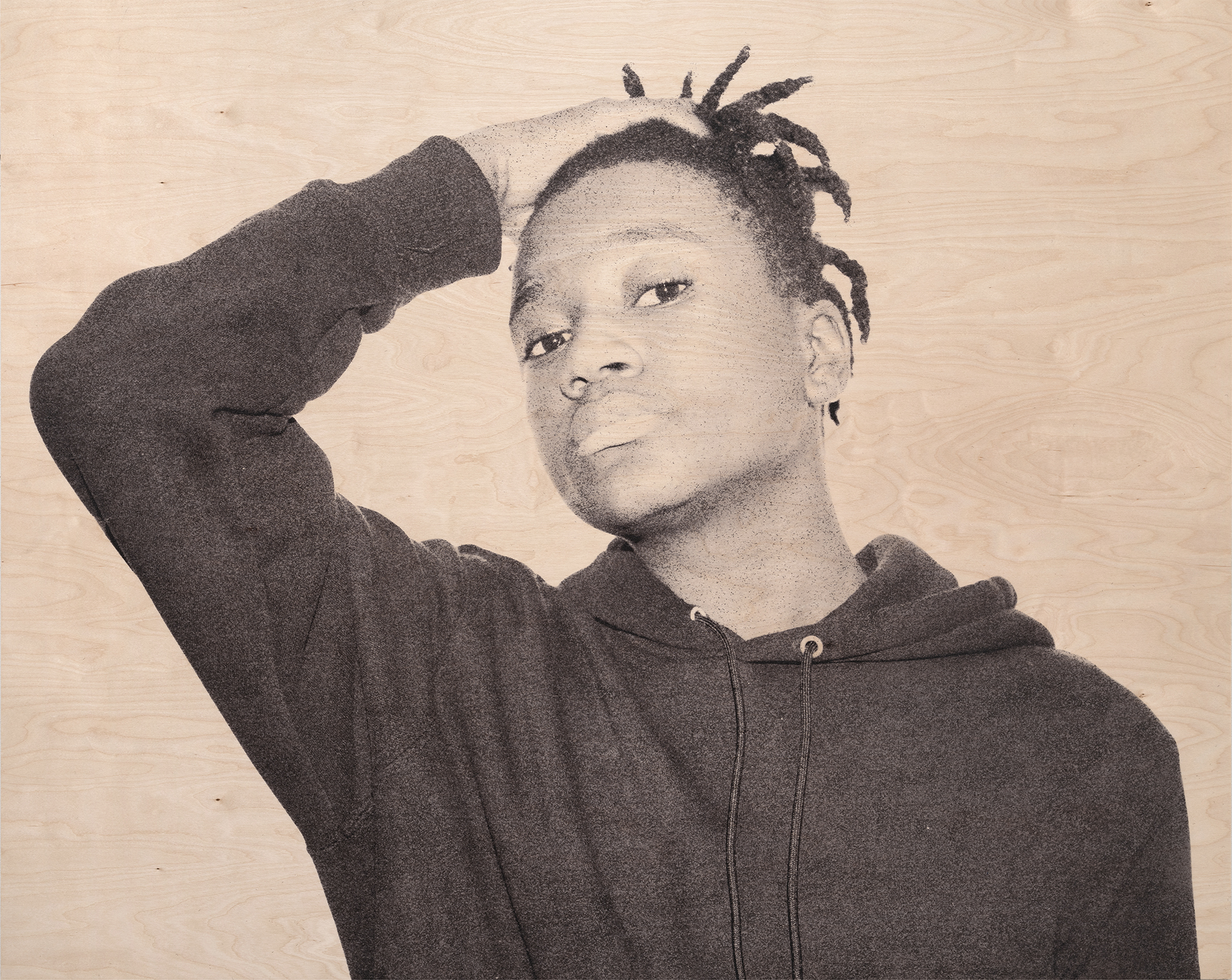
Korey Hair Trait 2
Hair and acrylic on birch veneer plywood, 50″x 40″, 2022
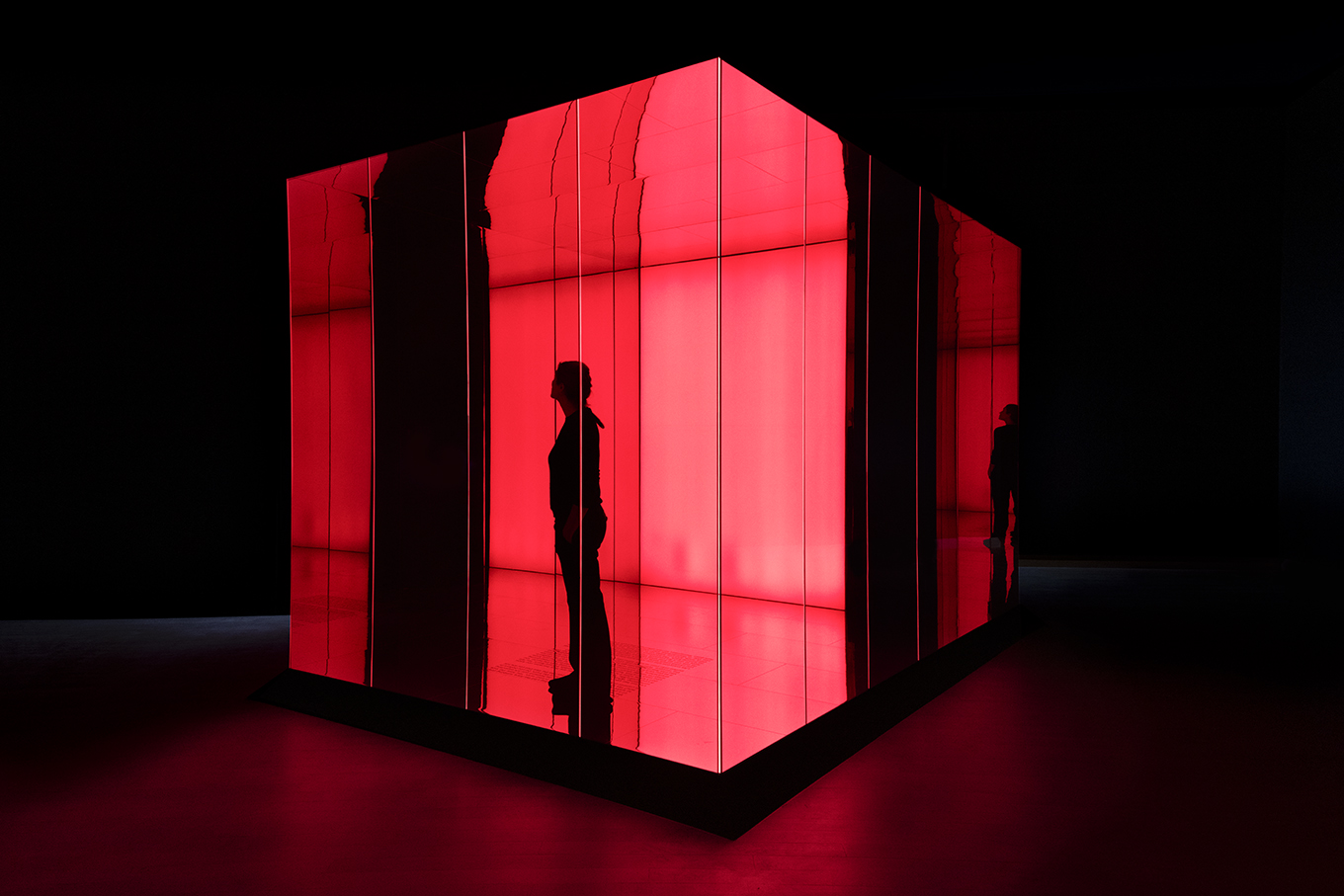
Garden of Eden (Sir David Adjaye)
Installation, 10′ x 27′ x 33′, 2003/2022
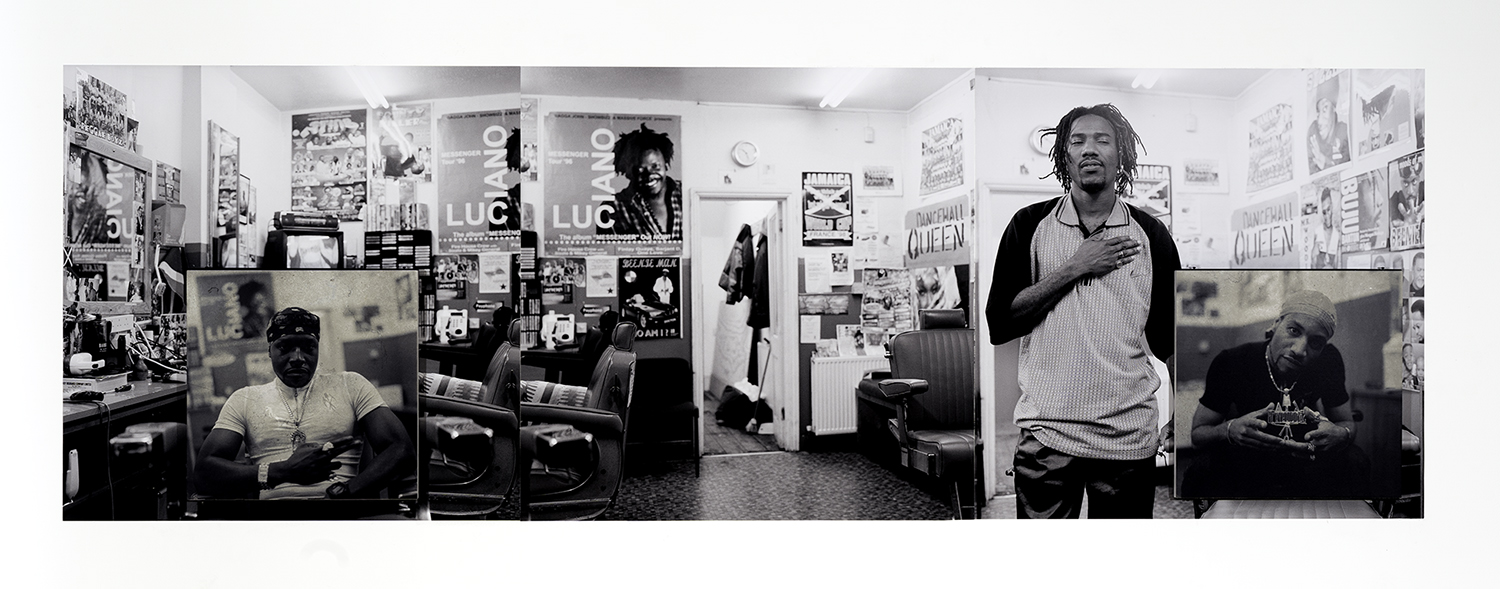
Grave Diggaz
Archival pigment print on paper and acrylic print on limestone, 120″ x 40″, 1998/2022
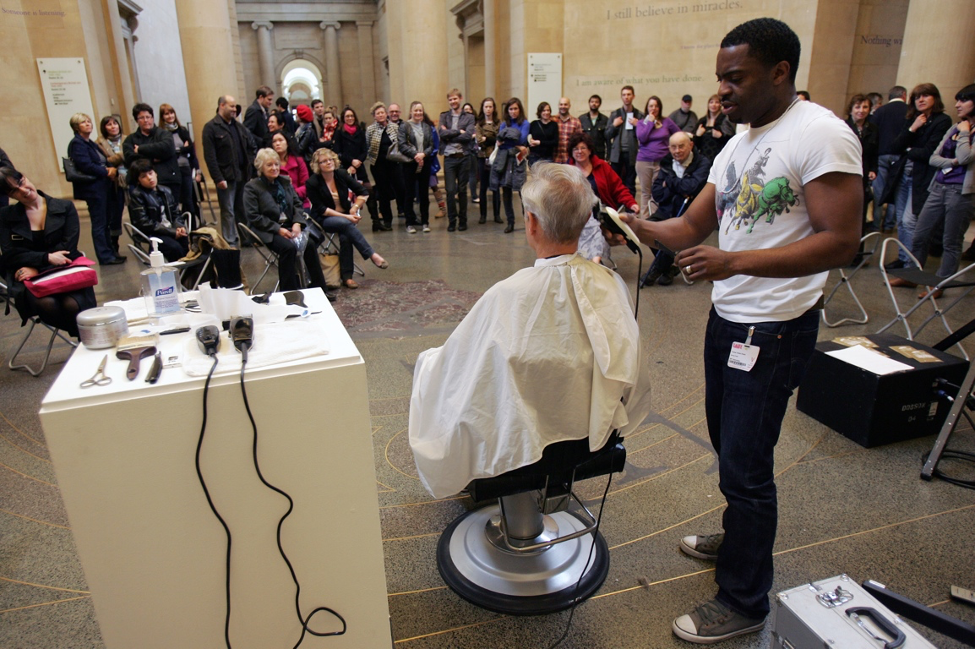
Live Salon, 2010
Tate Britain, London
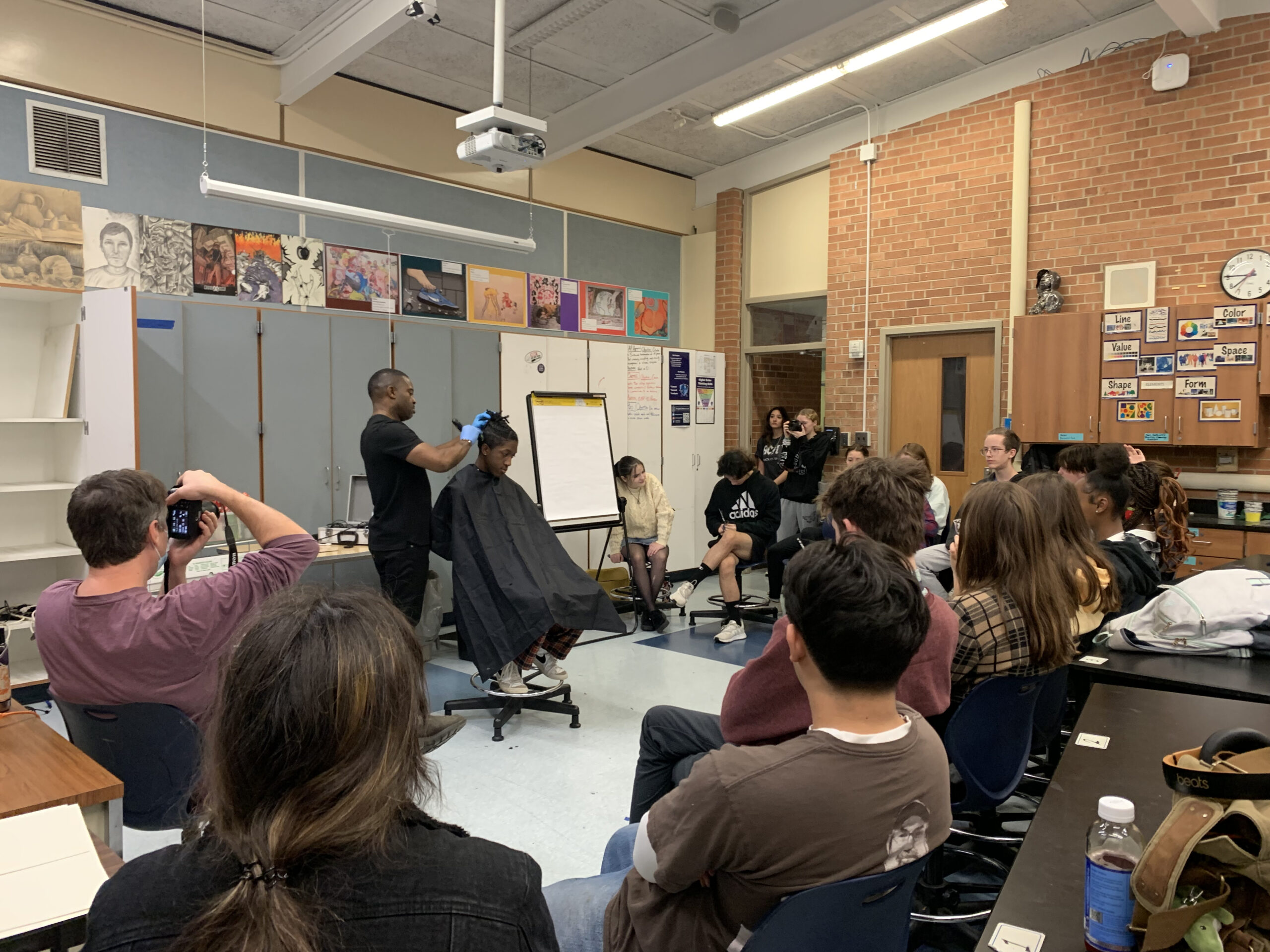
Live Salon, 2022
Kalamazoo, Michigan
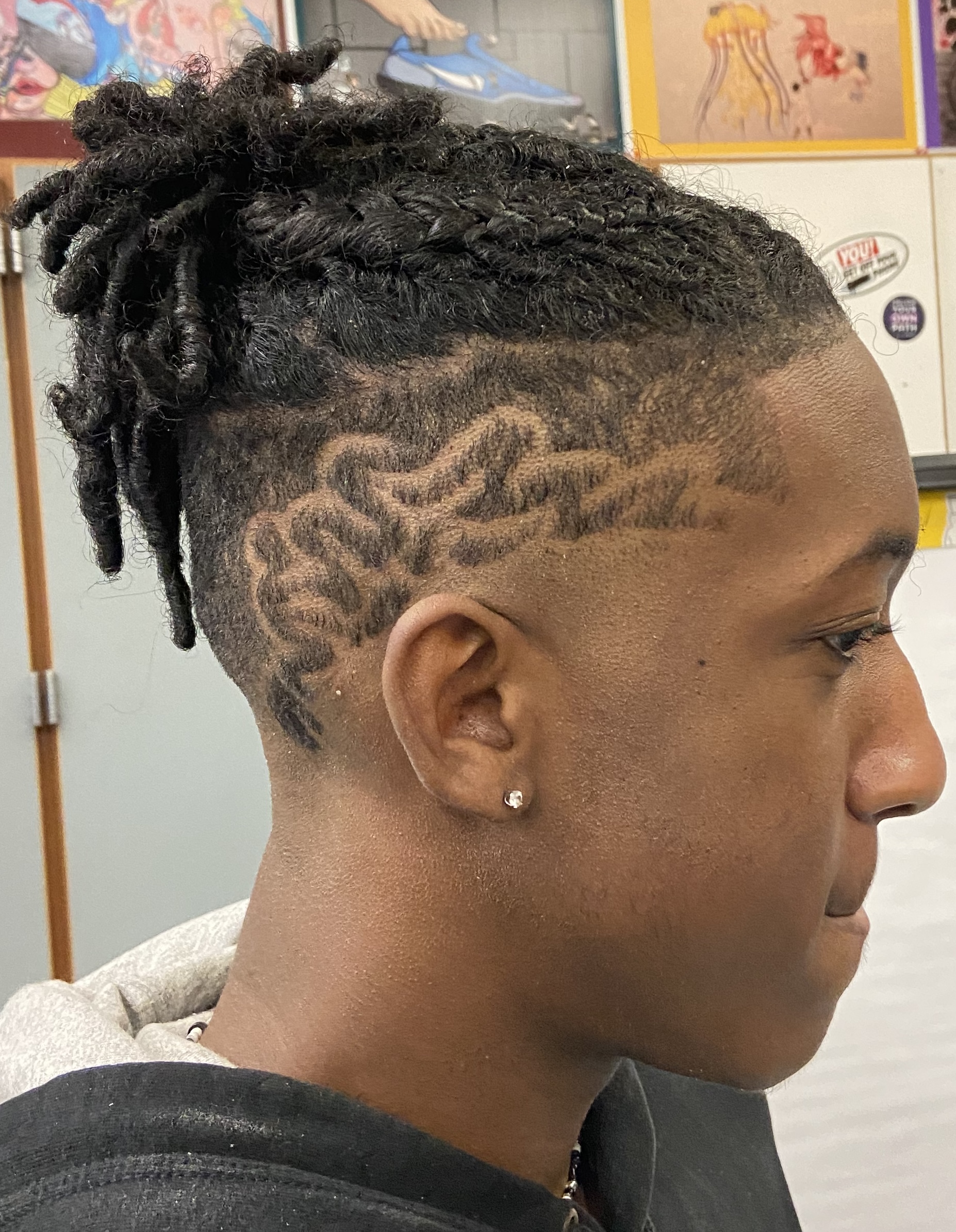
Live Salon Cut, 2022
Kalamazoo, Michigan
